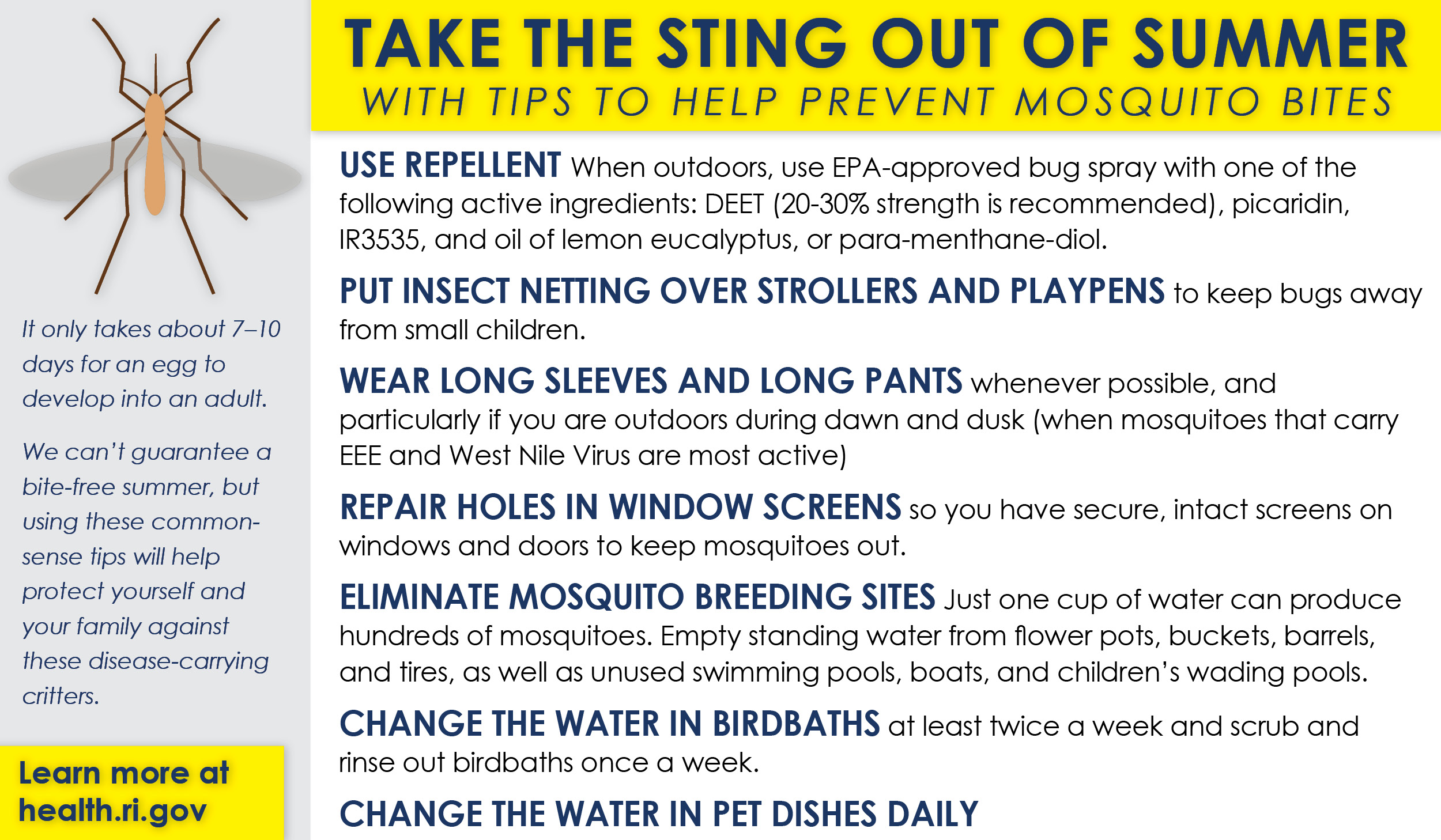West Nile and EEE have infected humans in our area
Be careful out there
The Department of Environmental Management (DEM) announced that the most recent round of testing by RIDOH State Health Laboratories has confirmed no new positive findings of West Nile virus (WNV). DEM collected 322 samples of mosquitoes from 84 traps set statewide Sept. 9-20. Results from mosquitoes collected during the Sept. 21-30 period are pending. To date, the state has confirmed five positive WNV findings, but no mosquito samples have tested positive for Eastern Equine Encephalitis (EEE).
However,
the Rhode Island Department of Health (RIDOH) announced RI’s first human case
of West Nile Virus in 2021. West Nile Virus is spread to humans by the bite of
an infected mosquito.
The
person who tested positive was a resident of Providence County in their 50s who
reported regular trips between Rhode Island and Massachusetts. This person is
currently hospitalized after starting to experience symptoms of West Nile Virus
approximately four weeks ago. Confirmatory testing was performed by the Centers
for Disease Control and Prevention (CDC).
Common
symptoms of West Nile Virus include fever, headache, body aches, nausea,
vomiting, and sometimes swollen lymph glands or a skin rash. Although many
people who are infected with West Nile Virus show no symptoms, symptoms last
for some people for several days or several weeks.
This
is Rhode Island's first human case of West Nile Virus since 2018. Connecticut
has confirmed three West Nile Virus cases in humans and Massachusetts has
confirmed seven human cases this year.
"Although we're nearing the end of mosquito season in Rhode Island, the risk is still high because mosquito-borne diseases have had the opportunity to become more prevalent in the mosquito population throughout the summer," said Director of Health Nicole Alexander-Scott, MD, MPH.
Rhode
Islanders should reduce their exposure to mosquitoes until the first hard
frost. (A hard frost is when the air and the ground freeze below 32 degrees F
for three hours or below 28 degrees F for two hours.)
Further,
the Connecticut Department of Public Health, however, confirmed Oct. 1 that
mosquitoes trapped in the Pachaug State Forest in Voluntown have tested
positive for EEE. These results represent the first EEE-positive mosquitoes
identified in southern New England in 2021 and are a reminder that Rhode Island
residents should take extra precaution during the final few weeks of the
mosquito season.
WNV
is much more prevalent than EEE. It has become established in North America
following its introduction in 1999. To date this summer, 206 pools of
mosquitoes trapped in Connecticut and 144 mosquito pools in Massachusetts have
tested positive for WNV. Connecticut has confirmed three WNV cases in humans
and Massachusetts has confirmed seven human cases and one alpaca case.
The
positive findings in Connecticut, Massachusetts, and Rhode Island indicate that
WNV has established seasonal activity in our area. WNV will remain prevalent as
the season progresses, so DEM and the Rhode Island Department of Health (RIDOH)
advise residents to reduce their exposure to mosquitoes until the first hard
frost. (A hard frost is when the air and the ground freeze below 32°F for three
hours or below 28°F for two hours.)
Personal
protection is the first line of defense against mosquitoes that may carry WNV,
EEE, or other diseases – and the most effective way to avoid infection. With
WNV established in the state, residents are reminded to eliminate mosquito
breeding grounds and prevent being bitten, whenever possible.
Related
links
